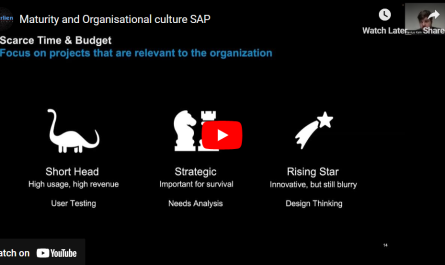Building UX Maturity at Scale: Lessons from Paysafe’s Fintech Journey
UX360 Research Summit Speaker Interview

I’m a UX researcher with 13+ years of experience in product and service design, focused on creating user-centered solutions with meaningful impact. As Director of UX Strategy at Paysafe Group, I guide teams in designing experiences that balance business goals with user needs, particularly in the fintech sector. I mentor a team of UX designers, researchers, and writers, fostering a collaborative and creative culture. My work focuses on humanizing technology by integrating user research throughout the product lifecycle, ensuring solutions are informed by real insights, validated through testing, and optimized for impact.
UX360: What motivates you to join the UX360 conference, and what is the core message of your talk?
Lyubomir: My motivation to join the UX360 conference is twofold: first, to learn from others, gain fresh perspectives, and be inspired by new ways to tackle shared challenges. Second, to share insights from my six-year journey of increasing the UX maturity of a global company committed to shape the future of online payments.
My talk will provide practical insights for UX professionals looking to establish, scale, and embed UX research within complex organizations, ensuring a long-term impact on product development. I would argue that there are three key prerequisites for success: Firstly, the UX practice should be tailored to the specific company’s cadence and business objectives. Secondly, UX leaders should communicate effectively at different levels of the organization to ensure that UX research is seen as a necessity rather than an optional function. Thirdly, true success lies before all in simplifying the practices.
UX360: How has this impacted your own work and your organisation?
Lyubomir: Increasing the UX maturity of a large-scale organization is a long journey. It requires more than just having a well-defined strategy: it demands adaptation and refinement; it involves contentious efforts to cultivate and strengthen a UX culture across various teams and at different levels; it requires the establishment of systematic processes for research, design, and product development.
When I started this journey six years ago, the UX practice within our organization was rather fragmented and inconsistent. Today, I can clearly see the progress made: our processes are more structured; the culture and understanding evolved; the UX is far better integrated into the way we work; there is a clear business value that the UX team can demonstrate.
That said, the journey is far from over. There is still much to be done to fully embed customer-centricity and UX-driven decision-making into the product development lifecycle. The pursuit of UX maturity does not end by reaching a fixed destination, it is a constant effort in shaping and maintaining the right mindset across the organization.
UX360: How has UX as a practice evolved in the last couple of years, and how would you like to see it evolve in the next few?
Lyubomir: I don’t see a fundamental change in what the UX role is. At its core, UX remains focused on understanding the users and improving their experiences with products and services while balancing business objectives. However, two major trends are worth mentioning.
Firstly, the rapid evolution of AI-driven tools is significantly impacting UX workflows. Advanced AI solutions can now analyze vast amounts of data, assist in research moderation, and even generate design concepts. While this raises efficiency, it also sparks concerns about the long-term role of UX designers and researchers.
Secondly, I’ve the feeling that UX seems to have taken a step back in driving the product strategy on many occasions. While companies publicly emphasize the importance of being customer-centric, there seems to be an increasing tendency toward speed-driven execution, rapid iteration, and a “fail fast” mentality. This trend challenges UXers to advocate for the value of deep research while adapting to the fast-paced demands of product development.
UX360: Given this evolution, what are two expected and two less obvious skills UXers should possess, and why?
Lyubomir: Moving forward, I think that UX practitioners will have to adapt their methods to keep pace with the rapid technological evolution while at the same time focus on tactical, incremental improvements rather than preaching for major paradigm shifts. Thus, the expected skills will be related to adaptability, flexibility and AI mastery.
As for the less obvious skills, I would say that storytelling is and will be the most essential one. Even the most well-researched insights and thoughtfully crafted designs lose impact if they are not communicated effectively. UXers must be able to translate complex findings into clear, compelling narratives, especially when the value of UX becomes more and more challenged in industries where speed of delivery is the main driver.
UX360: Apart from work, what can delegates at the event talk to you about? Do you have any particular personal interests, hobbies or extracurricular activities and engagements?
Lyubomir: I’m always up for conversations that explore the intersection of humanity and technology. But honestly, I welcome discussions on anything thought-provoking – from scientific discoveries to underrated historical events.
UX360: Last but not least, please help us to grow our UX Reading & Podcast list. What are your favourite recommendations to make to industry colleagues for inspiration, innovation, guidance and leadership?
Lyubomir:
- In your ears – Podcast:
-
-
- Product thinking with Melissa Perri
- UX Research Geeks
- Lenny’s Podcast
-
- Must read – Book/Blog:
-
- “Just Enough Research”: Erika Hall
- Growth Design Case Studies – https://growth.design/case-studies
- “Continuous Discovery Habits”: Teresa Torres
UX360: Thank you so much, Lyubomir! We look forward to hearing more from you at UX360 Europe 2025!
It’s your last chance to register for the UX360 Research Summit 2025 and meet UX research leaders in person!
The ultimate gathering of UX research and design leaders is here—two days packed with the latest industry insights, cutting-edge methodologies, and next-level inspiration.
This year, the summit features 30+ industry leaders from global powerhouses such as Google, Roche, IKEA, Meta, Nestle, and many more.
Network with world-class UX professionals from around the globe. Whether you’re a researcher or designer, this event is a must-attend for anyone looking to stay ahead in the field. Last chance to register!











 by
by 

